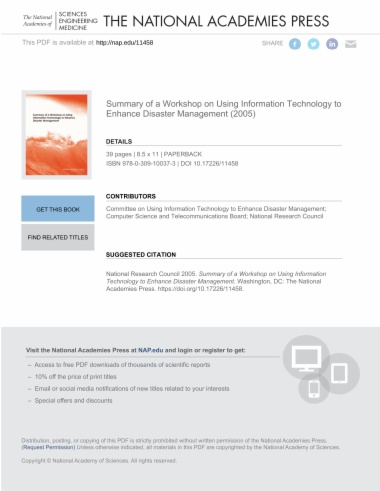Certification of critical software systems (e.g., for safety and security) is important to help ensure their dependability. Today, certification relies as much on evaluation of the software development process as it does on the system's properties. While the latter are preferable, the complexity of these systems usually makes them extremely difficult to evaluate. To explore these and related issues, the National Coordination Office for Information technology Research and Development asked the NRC to undertake a study to assess the current state of certification in dependable systems. The study is in two phases: the first to frame the problem and the second to assess it. This report presents a summary of a workshop held as part of the first phase. The report presents a summary of workshop participants' presentations and subsequent discussion. It covers, among other things, the strengths and limitations of process; new challenges and opportunities; experience to date; organization context; and cost-effectiveness of software engineering techniques. A consensus report will be issued upon completion of the second phase.
- Cover
- Front Matter
- 1 Overview of Workshop Discussions
- 2 Summary of Panel Sessions and Presentations
- 3 Summary of Closing Session
- Appendix A: Workshop Agenda
- Appendix B: Panelist Biographies
- Appendix C: Committee Member and Staff Biographies
- What is CSTB?

